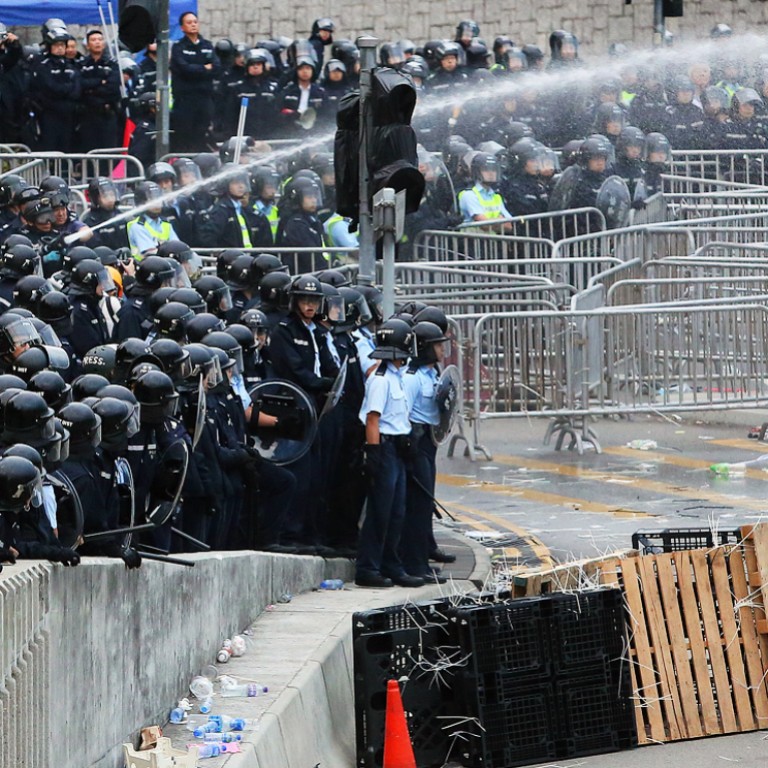
Hong Kong police deny plan to buy water cannon is linked to Occupy protests
Force wants HK$27 million to buy three vehicles for maintaining order
Police Commissioner Andy Tsang Wai-hung yesterday denied that a bid to seek HK$27 million to add three water cannon to the force's armoury was a response to last year's Occupy protests.
According to the budget, the force wants to buy three "specialised crowd management vehicles" - water cannon - at a cost of HK$9 million each.
"[I] believe we would all understand the difference between the impact of water on the human body, and that of pepper spray or batons," Tsang said, referring to the use of force in other places.
He said the request was being made after a post-operation review to ensure the force was well-equipped to maintain order.
The force had yet to decide which model of water cannon to purchase and that the HK$9 million per vehicle budget was a reference for tender bidding, a police source said, adding that the water cannon might not enter service for another two to three years.
But a police monitoring group accused Tsang of misleading the public on the dangers posed by water cannon.
"What he [Tsang] says is equal to telling someone that it's fine to jump from the Tsing Ma Bridge since it's just water you're jumping into," said Icarus Wong Ho-yin of the Hong Kong Civil Rights Observer.
"Water cannon, when used at close range, can pound people to the ground and cause bone fractures, and may cause a stampede when they're used to disperse a large crowd," he said.
On another police matter, the Civil Service Bureau had for the first time agreed to offer "some" current staff members priority if they applied for an extension of their retirement age from the current 55 to 60, said Joe Chan Cho-kwong, chairman of the Junior Police Officers' Association, which represents over half of the force.
The four police associations earlier issued a letter to Chief Executive Leung Chun-ying to express their discontent over the decision to allow only new staff joining this year the option to serve until the age of 60.
Chan said his association would ask the Equal Opportunities Commission whether the government's proposal constituted age discrimination.
